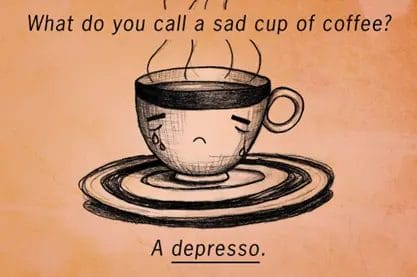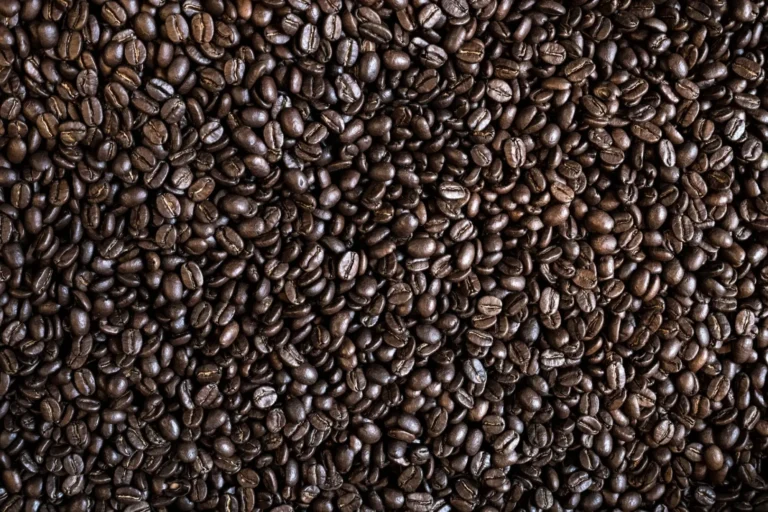Less bitter coffee drinks are the thing we want daily in our life. A bitter cup of it makes your morning painful and sad.

Your favorite morning cup doesn’t have to be an overpowered package of bitterness. Instead, turn it into a fa-brew-lous brew, filled with the goodness of all flavors.
Did you have all the bitter experiences with coffee? And now you think all the coffees are bitter? For you, I bring great news! Not all coffees taste bitter. Read on ahead to find out more about bitter-less coffee types to soothe your taste buds.
Do All Coffee Taste Bitter?
Coffee is associated with natural bitterness. But there are times when it’s harsh on your taste buds; that’s when it is bitter as sin. So choose your coffee wisely to avoid the overpowering bitter taste. Learn them at a glance.
Bean Type
You might think, bitterness in coffee comes only from roasting. Wrong. Some coffee beans are born bitter. For example, low-quality, Robusta beans taste far more bitter than high-quality Arabica beans.
It’s because Robusta is filled with caffeine and chlorogenic acid. Arabica beans have them, too, just at a lesser quantity.
You might find most cheap coffees, blends, and instant coffees are of Robusta variety. Avoid them, and buy high-quality Arabica beans to enjoy all the natural sweetness. It is of superior taste and mild flavor.
Degree of Maturation
Think of a fruit that you plucked before it has ripened. How will it taste? No doubt, it’s sour and unpalatable-the same with coffee. However, suppose your coffee comes from an unripe cherry. In that case, it has a lot of bitterness as chlorogenic acid content is higher in it.
When the coffee-cherry gets time to mature, the bean gets sweeter with time until it reaches its peak. After that, the sweetness fades, and the coffee gets worse as time passes. So, the degree of maturation while plucking the cherry is vital in contributing to bitterness.
Degree of Coffee Roasting
Roasting makes coffee taste bitter. Wonder how? Okay, here’s the science.

The unroasted green coffee beans are tasteless, flavorless, moist sponges that smell grassy. Roasting helps the bean’s flavor, aroma, and taste to come out.
The beans lose moisture during the roasting process. It also causes chemical and physical changes inside the bean. Chemicals like Chlorogenic acid and lactone break out from the bean. Those are responsible for the coffee’s bitterness and not the acid itself.
The degree of roasting affects the amount of bitter compound present. Therefore, dark roasts taste harshly bitter. Conversely, a light roast adds a pleasant flavor to your coffee.
Incase, If you want to know more about coffee roasting, Check out Types Of Coffee Roasts.
Brewing Errors That Make Coffee Bitter
Think you can beat the bitterness by having mildly roasted, appropriately matured, high-quality Arabica-brewed coffee? Not really. Even a wrong brewing or over-extraction can make you a bitter cup of your regular coffee. With that said, learn the mistakes and ways to fix them.
Proper Timing
A longer extraction time makes your coffee taste more bitter. There’s a time when your coffee tastes just perfect. Please do not overdo it. That extra brew time brings out the different bitter flavors from the grinds. Also, an under-extraction makes the coffee taste sour and weak.
Using an Aeropress or French press coffee maker, Know when to push down the plunger. You can use a timer and experiment to figure out the sweet spot. Leaving your coffee in the press for later is a bad idea. Use a thermal pot to store it instead.
With a pour-over method, pour the water faster. So, it lessens the contact time with the grind and cuts down on brew time.
Right Method For The Right Grind
A bitter cup can be made using the wrong grinding size for coffee brewing methods. Fine coffee grounds have a higher surface area that allows extracting more flavor. In addition, the coarser grind gets you a lighter and sweeter brew.
Never use fine coffee grounds for a French press or percolator. However, you can use them for pump or steam espresso machines. On the contrary, a regular household coffee maker requires a medium grind.
Inaccurate Coffee-Water Ratio
More milk to your coffee makes it creamy. More sugar makes it sweeter. And what does more coffee to water do? No doubt, it makes it bitter. An inaccurate coffee-water ratio can also give your coffee a sour taste.
Baristas worldwide use a ratio ranging from 16:1 to 19:1 depending on the brewing technique. Figure out the perfect coffee to water ratio that suits you to avoid the bitter or sour taste.
Overheating
Too hot water can extract more of the flavor, aroma, and bitter compounds. If you always end up with a bitter brew, do not over-boil. Boiling water is too hot for a cup of coffee.
Try going down a few degrees in temperature. For a pour-over method, wait a few minutes before pouring the hot water.
Dirty Brewing equipment
The leftover coffee residue from the last brews adds to the bitterness of future cups. Always make sure you have clean equipment operational for each brew. Dirty brewing equipment can lead to health issues and a bad taste in your mouth in the morning.
Hey, Here’s another piece of us about the most bitter coffee & reasons.
Less Bitter Coffee Drinks
Coffee’s bitterness can be a personal preference. Some might enjoy the bitterness, while others can’t stand it. Black coffee, espresso drinks, ristretto are some bitter coffee drinks that might not be for you. That’s natural, don’t make yourself a wimp for saying it aloud. Instead, let’s find out which drinks can suit you most.
Cold-Brew Coffee
Cold-brew is a refreshing summer favorite and a choice for bitter-fiends. However, since a cold brew uses cold water, it extracts less flavor than hot water. That means the bitter compounds are also less abundant in a cup of cold brew.
If hot coffee and bitterness aren’t your things, you can choose from various cold brew coffee drinks or iced coffee.
Milk-Based Coffee
Try milk-based coffee drinks if you don’t like your coffee to be bitter. You have countless options within this category-Latte, Cappuccino, Flat white, Frappe, Latte Macchiato, and many more.
Milk has a natural sweetness in the form of lactose. Specific amounts of milk help you counteract the bitterness of coffee. You can either add steamed milk or milk at room temperature to create your ideal cup of coffee
Add-Ons for Coffee Drinks
Adding vanilla flavor or dark chocolate mellows the bitter coffee flavor. Moreover, cubes of sugar complement the bitter taste of coffee. You can also add salt to make non-bitter coffee. Yes, you heard it right. A pinch of salt can counteract a bitter brew.
Is Bitterness All Bad?
Bitterness is not nasty until it makes you go. . .

The bitter flavor is what makes your coffee taste like coffee. But, on the other hand, no bitterness means coffee that is either too sweet or has an acidic taste.
In a delicious cup of brew, bitterness is way beyond a dominating taste of coffee. Instead, it’s the key to a balanced cup of java. It complements the complexity of a variety and balance of flavors. Fruity, floral, chocolaty, nutty, spicy, and whatnot.
So, you see, bitterness is essential to maintain the balance of flavors, which doesn’t make any “bad coffee.” But if it is lip-curlingly bitter, you know how to fix it like coffee hipsters.
No more talks about less bitter coffee drinks. Here’s another piece of our about sweetest coffee drinks.
FAQs
A: High-quality Arabica beans taste less bitter than Robusta beans.
A: Yes. A pinch of salt can counteract a bitter brew.
A: Coffee is associated with a bit of natural bitterness, making your coffee taste like coffee.
A: Dark roast coffee tastes harshly bitter.
A: Milk contains lactose, a natural sweetness That helps reduce bitterness.
A: Otherwise, leftover coffee residue from the last brews adds to the bitterness of a future cup of coffee drink.

